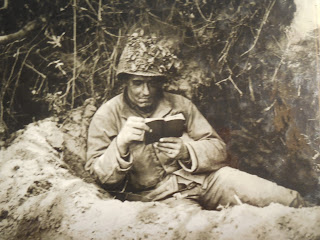"Not for left-brain readers".
Last night, I read this quote: "Good order is the foundation of all things" (Edmund Burke 1729-1797, author, orator, political theorist and philosopher).
This book has no order, at least not one that I can find. It begins in 1944 and ends in 2014, but here are the section titles: Aug. 7, 1944; 1934; Aug. 8, 1944; June, 1940, August 8, 1944; January, 1941; August 8, 1944; August, 1942; August 9, 1944; May, 1944; August 12, 1944; 1945; 1975; 2014.
Who does that make sense to? Can right-brain people make sense of this?
There definitely are people who are able to appreciate this book. It won the Pulitzer Prize in 2015 as well as other prizes.
I recognize that there are great characters and a fascinating plot, but without any order, I cannot appreciate anything in the book. Frustration does not make for a good reading experience.
The author has used two protagonists and the narrative flips back and forth. The chapters are short- often only one page.
Putting the story together is much like a puzzle and I love puzzles, so why not join those two pleasures? Because puzzles are work and when I begin a puzzle, I am in 'work mode'- looking for a challenge. However, when I read, I relax and expect that the author has done the work and I just have to jump in and ride along.
No pleasure here- only frustration.
I have not given details of the plot or characters, but my fellow blogger does a good job of that. You can read Sue's blog here.
This book was the focus of a recent book club and I asked if the others were comfortable with the time changes. Of the 20 people attending, 9 were positive about the non-linnear method of storytelling. We also learned that it can be called a "disruptive" narrative.
While discussing the book, I was reminded of the great themes and wonderful characters and it made me more annoyed that the book was not presented in a fashion that could be enjoyed by all.













































